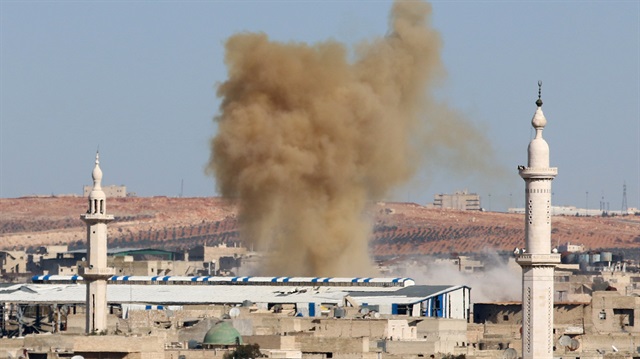
Damascus rejects to create an “autonomous zone” for the moderate opposition east of Syria's northern city of Aleppo, saying “it infringes on Syrian sovereignty”
The Syrian regime of President Bashar al-Assad rejected the proposal of the United Nations (UN) Special Envoy Staffan de Mistura, who asked Assad to create an “autonomous zone" for the moderate opposition east of northern Syrian province of Aleppo, saying it infringes on Syrian sovereignty.
Syrian Foreign Minister Walid al-Moallem, who on Sunday met with the UN envoy to Syria, said that the restoration of the rule of power is a matter of “national sovereignty" and that Damascus will allow residents of Eastern Aleppo to be “hostages of 6000 armed men."
“We agree with the need to make terrorists out of Eastern Aleppo end the suffering of civilians," Moallem said.
Moallem also called on the moderate opposition to withdraw, and said he hoped that U.S. President-elect Donald Trump's incoming administration would cut off support to them in Syria.
However, Mistura highlighted a possible new humanitarian crisis as around 200,000 people may proceed to Turkey as a consequence of the intensified attacks of Russia and the Assad regime. "A humanitarian disaster is on its way. It should be prevented," Mistura said.
On Saturday, the Omar Bin Abdul Aziz Hospital, the last remaining hospital serving the eastern neighborhoods of Aleppo, held by the opposition, was hit several times yesterday.
Since then, no hospital has provided service, according to a statement released by the local health authority of Aleppo, a subsidiary of the provisional government founded by the Syrian opposition.
Russia and the Assad regime are known to bomb Aleppo, the Syrian province located 50 kilometers from Turkey, with barrel and phosphorus bombs.
Despite the Syrian regime's denials, it was proved more than once by the independent commissions that Assad has been using chemical weapons since 2013.
According to the Syrian monitoring center for human rights, last week, 172 civilians were killed after the regime resumed the offensive in Aleppo.
The civil war in Syria has killed more than 250,000 people, according to the United States, while the Syrian Center for Policy Research, an NGO, has put the total death toll from conflict at more than 470,000.
Hello, the comments you share on our site are a valuable resource for other users. Please respect other users and different opinions. Do not use rude, offensive, derogatory, or discriminatory language.
The floor is all yours.










